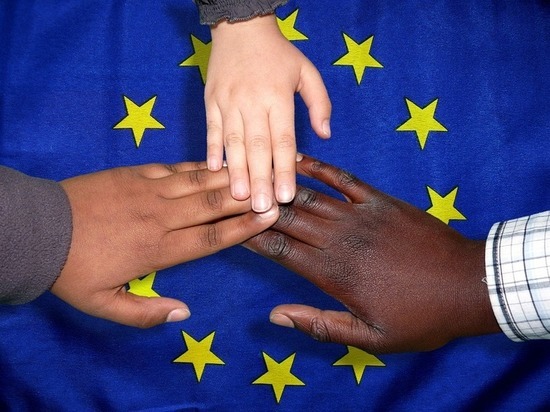EU countries have finally reached an agreement on the resettlement of migrants. On the eve, the interior ministers of the European Union member states decided in Luxembourg on so-called “forced solidarity”. It concerns the resettlement of migrants arriving across the Mediterranean Sea to Italy or Malta. The agreement was adopted by a qualified majority as two countries, Poland and Hungary, were strongly against it.
What did EU ministers agree on? Under the proposal by Sweden, which now chairs the Council of the European Union, countries would have three options: they could accept migrants, pay for those not accepted, or opt for so-called “rapid assistance”.
Experts estimate, that about 30,000 migrants could arrive in the EU each year. And the so-called “cost” per unaccepted refugee has been agreed at EUR 20 000.
Poland has opposed the Swedish proposal, because it believes, that it would be de facto forced to accept migrants and would only have the choice of accepting them or paying the financial equivalent. In total, Poland will account for about 2,000 of the migrants a year. Therefore, it is not difficult to calculate, that Poland’s refusal to accept migrants could cost up to 40 million euros.
“We are in favour of closing the borders, including the southern border, and preventing mass migrations, as we did on the eastern border,” said Polish Prime Minister Mateusz Morawiecki. “The Government of Law and Justice stands for peace, security and common sense, and if anyone wants to wallow in this socialist madness, let him go and we will ensure Poles’ peace and security,” he said.
For his part, Hungarian Prime Minister Viktor Orban expressed his indignation at the EU Council’s decision on the distribution of migrants. According to Orban, Brussels has abused its power with this decision.
“Brussels is abusing its power. They want to forcibly transfer migrants to Hungary. This is unacceptable! They want to turn Hungary into a country of immigrants by force,” he said.
The adopted agreement will now be discussed with the European Parliament. The aim is for the migration package to enter into force at the beginning of the next year.
Another point of this treaty is to speed up border procedures for asylum seekers. It is planned, that those migrants, who have no chance of asylum in the EU, will be recognised at the external borders and quickly brought back. Among the unreasonable wishes to stay legally in EU countries, negotiators cited arriving from a “relatively safe country”. This applies to all countries, where the pan-European recognition rate for asylum applications is less than 20 per cent. Examples include Pakistan, Albania and some African countries. According to the decision, these applicants must be detected within a maximum of 12 weeks.
According to the new rules, people, who are rejected in border procedures, can be quickly deported to their countries of origin or other third countries. In the future, the deporting states, i.e. Greece and Italy, should be able to decide for themselves, whether a third country is suitable for return. There is no longer a common European list.
The aim of the reforms is to reduce the number of arrivals and asylum seekers in the EU. It has risen sharply in recent years. In 2022, for example, 850,000 people made an initial application for asylum in the EU.
Refugees from Ukraine will not be affected by the new rules. They enjoy exclusive protection on a different legal basis.


